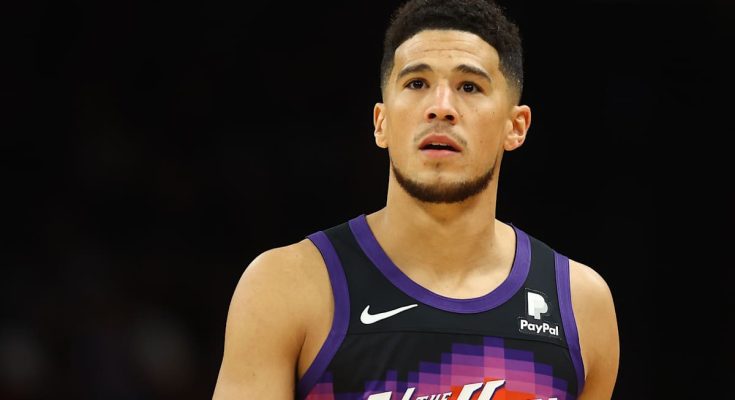An explosive scandal is rocking the sports memorabilia world and the Miami Heat organization after a former team employee was accused of stealing game-worn jerseys worth millions of dollars — including those worn by none other than LeBron James. This case, which has sent shockwaves through both NBA circles and the world of collectible sports items, raises serious questions about internal security measures, trust within organizations, and the booming black market economy surrounding sports memorabilia.
The former Miami Heat employee at the center of the allegations, identified as Steven Zuluaga, allegedly abused his access to the team’s equipment storage and inventory system over a multi-year period to carry out the heist. According to federal court filings and investigative reports, Zuluaga is accused of illegally acquiring and selling dozens — possibly hundreds — of authentic, game-worn jerseys from some of the Heat’s most iconic players. Among the most high-profile items reportedly stolen are jerseys worn by LeBron James during his historic tenure with the Heat, which included two NBA championships and multiple Finals appearances.
What makes this case particularly egregious is the strategic, almost surgical nature of the theft. It wasn’t a matter of one or two items slipping out unnoticed — this was a prolonged and calculated scheme. Investigators believe Zuluaga used his privileged position to avoid detection for years, exploiting weaknesses in the team’s inventory and authentication systems. With sports memorabilia commanding unprecedented value at auction, especially items tied to basketball legends like LeBron, Dwyane Wade, and Chris Bosh, even a single jersey can fetch hundreds of thousands of dollars if verified as game-worn and tied to significant moments.
According to the U.S. Attorney’s Office, the scheme may have begun as early as 2013, during the height of the Heat’s Big Three era. By discreetly removing the high-value items from storage and selling them through third-party dealers or private collectors, Zuluaga allegedly built a web of illicit transactions that brought in millions in profit. Several of the stolen jerseys were later verified by independent authenticators as genuine game-worn apparel from Finals games and pivotal playoff moments — making their loss not just a matter of monetary theft, but of historical significance to the NBA and the Miami Heat franchise.
The allegations became public after a federal investigation was launched in collaboration with the NBA’s internal security division. A sharp-eyed memorabilia expert reportedly tipped off authorities after noticing a suspicious number of Heat jerseys from the early 2010s appearing in private sales, many of which lacked official team provenance or had questionable backgrounds. That tip, combined with investigative subpoenas and internal audits conducted by the Heat, eventually led to the uncovering of the internal theft and the naming of Zuluaga as a central figure in the case.
The federal complaint paints a picture of not only theft but betrayal. The stolen jerseys include those worn by LeBron James in critical games — including matchups from the 2012 and 2013 NBA Finals, where the Heat clinched back-to-back championships. The resale value of these particular jerseys could range from $500,000 to well over $3 million apiece, especially in today’s red-hot sports memorabilia market. Some of the jerseys were reportedly auctioned to unsuspecting buyers who believed they were participating in legitimate sales. Now, those purchases are under scrutiny, and legal battles could follow regarding rightful ownership and possible forfeiture.
The Miami Heat organization has released a brief but firm statement expressing disappointment and emphasizing its commitment to full cooperation with authorities. “We take this matter extremely seriously,” the team said, adding that they are “reviewing and strengthening our internal controls to ensure this can never happen again.” The team has not publicly detailed how many jerseys were stolen or which specific games they were tied to, but sources close to the investigation say the total number could reach into the triple digits.
For collectors, this case serves as a harsh reminder of the risks involved in high-end memorabilia acquisition. Authentication is key in this industry, but even experts can be fooled when items come with convincing documentation — some of which may have been forged or acquired illicitly by Zuluaga. Now, entire collections may be tainted, and buyers are nervously reassessing the authenticity and origins of Heat memorabilia in their possession.
The NBA has yet to issue a formal league-wide statement, but insiders indicate that commissioner Adam Silver is being briefed closely on the situation. With growing popularity around collectible sports items, and the league leaning into memorabilia and historic preservation, this case represents a potential PR nightmare. It also raises questions about whether other teams could face similar vulnerabilities within their equipment and storage departments.
Legal experts expect a full trial unless a plea deal is reached. If convicted of wire fraud, theft of government property, or related charges, Zuluaga could face a lengthy prison sentence and massive financial penalties. Meanwhile, authorities are working to recover as many of the stolen jerseys as possible. Several auction houses have already frozen sales of Miami Heat memorabilia pending further verification, and collectors have been urged to come forward if they suspect their items may be tied to the theft.
As for LeBron James, he has not yet publicly commented on the matter. Still, those close to him say he is “deeply disappointed” that part of his career — particularly the iconic Miami chapter — has been exploited for profit. For a player who carefully guards his legacy and has donated numerous game-worn items to museums and charitable foundations, this betrayal cuts deeply.
The world of sports is often filled with drama, but it usually takes place on the court. This scandal has spilled over into the shadows of the locker room, calling into question the trustworthiness of those entrusted to guard history. And as the investigation continues to unfold, it may expose just how far some will go to profit off greatness — even if it means stealing it.



